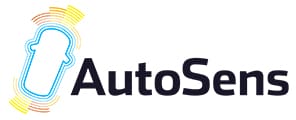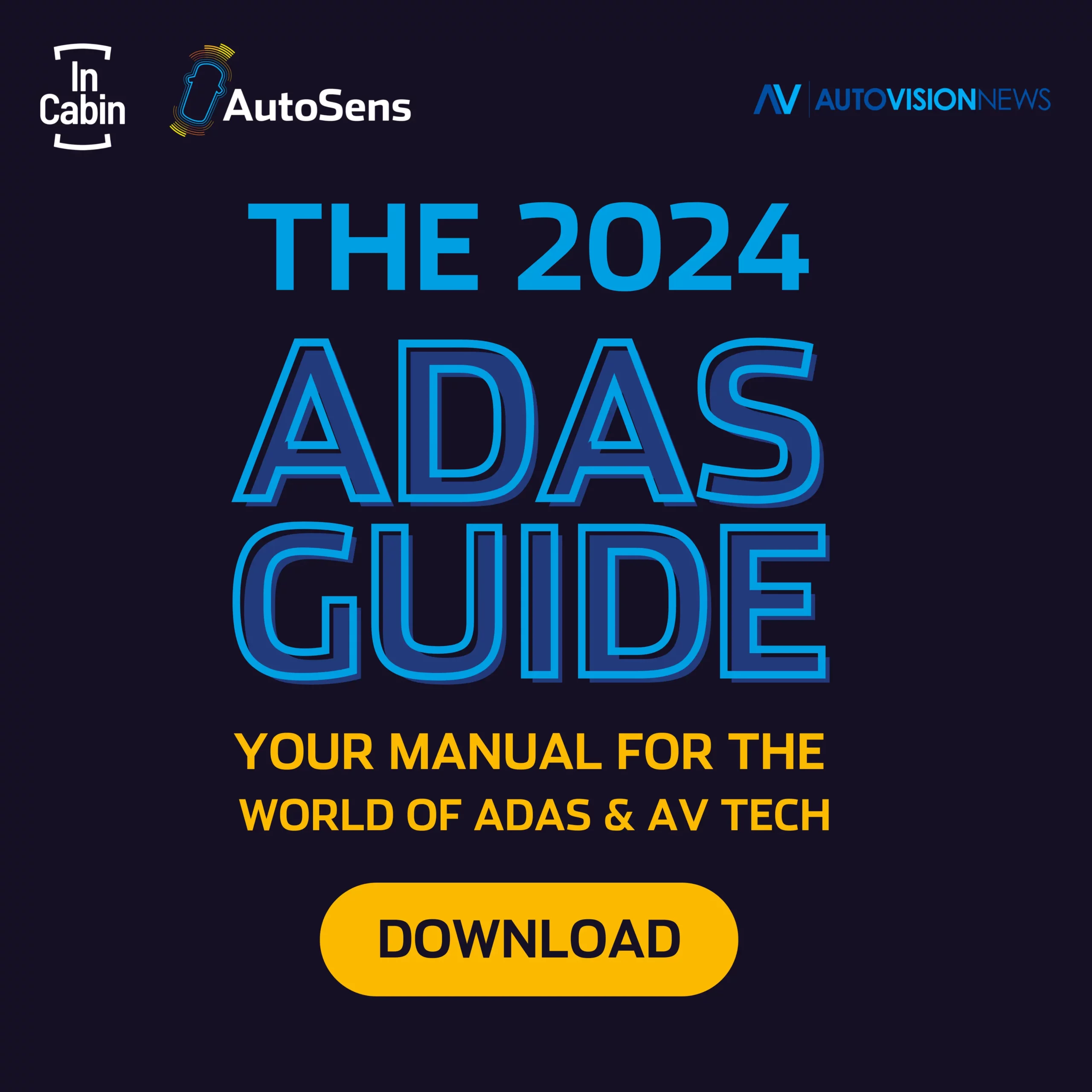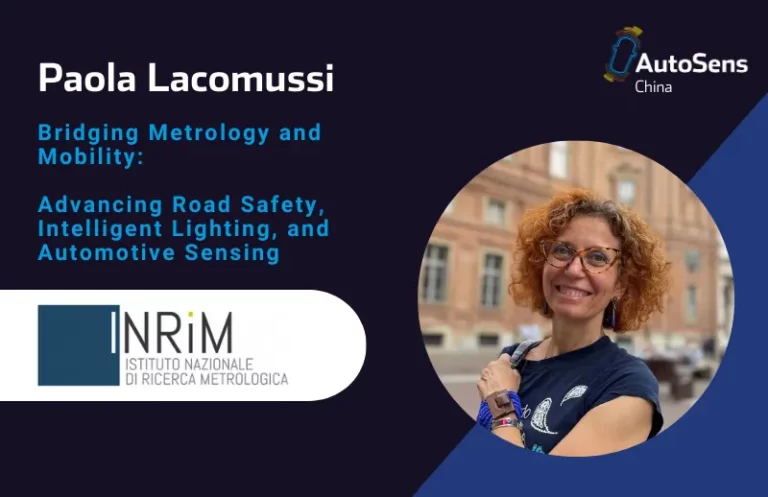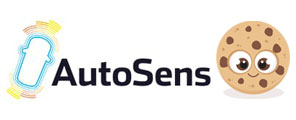You were involved in developing AutoSens Academy with the Sense Media team, what motivated you?
I love teaching! And I love AutoSens! Seriously though, I have made so many great connections at AutoSens over the years, and I see how the organisers are dedicated to supporting engineers career development with initiatives like the Women in Engineering programme, and Young Engineer of the Year Award.

So when Rob and I started talking about a summer school idea a couple of years ago the idea gained momentum.
Of course, right now we can’t all go to a summer school residential course, but I think the concept translates well to the online format, and it will open up the opportunity to a much wider audience. I stressed the importance of being committed to good learning outcomes for attendees, and the AutoSens team have really taken this on board with the course design so I was very happy to come on board as tutor for not just one, but two modules!
Each module has a 4-stage teaching method, why is this beneficial?
As I mentioned, the teaching methodology, or ‘didactic’ as we say in Germany, is key to ensuring there is a good learning outcome. Of course, at university this is the primary objective, but you would be surprised how often it is overlooked in industry training. AutoSens Academy takes the best methods from academia to ensure great value for attendees, combined with the very industry-relevant programme of content that will be a great boost to any engineer’s career.
The 4-week structure of each module combines modern teaching methodology: The first week we have a flipped classroom where students learn at home via pre-recorded materials and reading lists. Then, in week 2 we set some exercises to challenge the understanding from the first week’s learning. In week 3 we have a live session with agile-based learning – based on feedback from the homework the tutor will take the class through in depth problems, discussion and group exercises. The final week consists of a review, written assessment, and extensive access to additional reading materials.
It is designed to be challenging and require commitment, while flexible and able to fit around work requirements.
How much detail will each module go into?
The full programme of modules covers all the major technology components and processes involved in developing an ADAS or autonomous vehicle perception system. It’s designed to give a comprehensive overview of the suite of electronic components, system architecture, software approaches, plus testing and validation. Each module is of course limited to some degree by time spent – there are week-long dedicated courses on many of these topics, and AutoSens Academy isn’t competing with those.
However, I believe there is great value from gaining an understanding of all of these elements, and whether you are in the research or industrial domain, having a good working understanding of all the parts of the chain will help you design better systems and components. The course material does come with pre-requisite engineering and scientific knowledge (specific guidance is given per module), but is designed to be accessible for anyone joining the ADAS/AV industry either as a graduate, or from a related engineering or scientific discipline.
Tell us a little bit about your background and how you got into teaching.
The topic of my PhD was quantum computers in quantum optics, very(!) basic research, no application in sight, and I very much liked it that way. Therefore, it was a big step for me to leave academia after my PhD, but it was the right move, and it turned out to be better than I had anticipated. I started as an optical designer at a Tier 1 company in the automotive industry, developing a camera for ADAS. I was also responsible for the optical quality of the product, and later accompanied colleagues from purchasing and quality to specify, buy and validate optical components.
That time has given me a great respect for the level of complexity simple questions can have in a mass production context (and how that mote of dust on the production line influences the Traffic Sign Detection rate in the field). Nonetheless, automotive (in a ‘slightly’ biased approximation J) mainly cares about cost and SOP, so with tight deadlines and too many tasks heaped on top of each other meant that there wasn’t enough time for those interesting, complex questions.
Luckily for me there is a form of academia in Germany called University of Applied Sciences, which is distinct to traditional universities in that it requires professors to have a least five years of relevant industry expertise. My main responsibility now as a Professor of Physics at my university in Düsseldorf is to teach, but I also have a little time to continue delving into those interesting questions, and to take the time to dig deep. I now lead a small group including two PhD students, who work on modelling the optics of ADAS/AD cameras, with the goal of measuring an actual lens and physically-realistically simulating that lens, and where the team has done great work already.
What have you learned about online teaching over the last 12 months?
All academics have learned a lot about teaching online over the last – we have been forced to! The tools and thinking have matured quickly, and with a well thought-out didactic and course content, online learning can be very effective. Add to this the ability to connect many people from across the world in a way that just wouldn’t be possible with a classroom course, and we have a great way to upskill the workforce in a flexible manner.
Why is training important in the ADAS and autonomous vehicle technology space right now?
I’m not a market expert, but from what I can see the areas of camera and sensor engineering in the automotive sector are very healthy. There are many commercial reasons why the OEMs continue to invest in improving these technologies, and there is a global shortage of experienced engineers. The opportunities for upcoming engineers are significant, and I think the AutoSens Academy would be a very effective way to boost your career.
At the same time as there being strong career opportunities in these fields related to sensors and imaging, there is a lot of new science going on, and technologies are pushing the boundaries of current knowledge all the time, so it’s important to have the latest contextual information about the whole technology ecosystem.
What is unique about AutoSens Academy?
Well, I would say I think it’s a great course because I helped design it J But I’m also a big fan of Sense Media and the AutoSens team, their approach of ‘by engineers, for engineers’ isn’t just lip service, they are really dedicated to supporting this community of technical staff and scientists to build better technology, faster. That’s why the AutoSens community has significantly grown over the last five years, because people see the commitment, and they come back.
I think AutoSens Academy is a great – and really quite natural – extension of the event series. You will not find, anywhere in the world, a similarly accessible online course that covers this specialised topic in this breadth and depth, because it is ‘by engineers, for engineers’.
But the most unique ‘feature’ carries over from the AutoSens conference series: it is the openness and the depth of discussion. People connect, overcoming classical company boundaries by the shared understanding that – keeping all competition intact – the challenges of ADAS and AD are much, much bigger than a single company. All tutors come from this AutoSens community, joined by the pursuit of a common understanding of a highly complex technical challenge.
Lastly, I also think it will be fun to participate in, because as well as the learning there is the community aspect and I know AutoSens conferences are a lot of fun as well as being a valuable learning experience. I’m sure AutoSens Academy attendees will make new connections that will stay with them throughout their careers.
AutoSens Academy Launch Offer
The AutoSens Academy is available to purchase at an introductory rate of £1,499. This rate expires on 24 March and the full rate of £1,999 will be charged thereafter. The first module will begin on 29 March.
For more information on AutoSens Academy, please visit auto-sens.com/academy/






